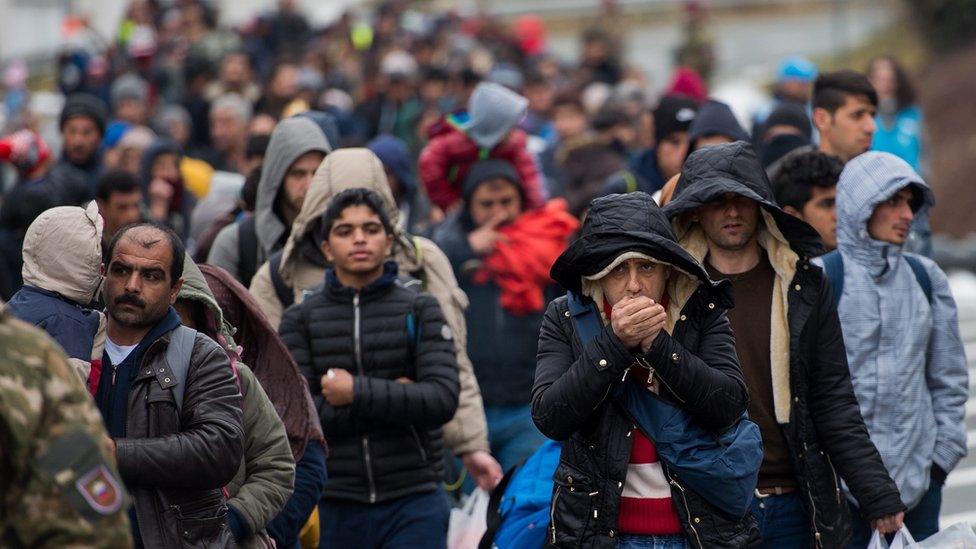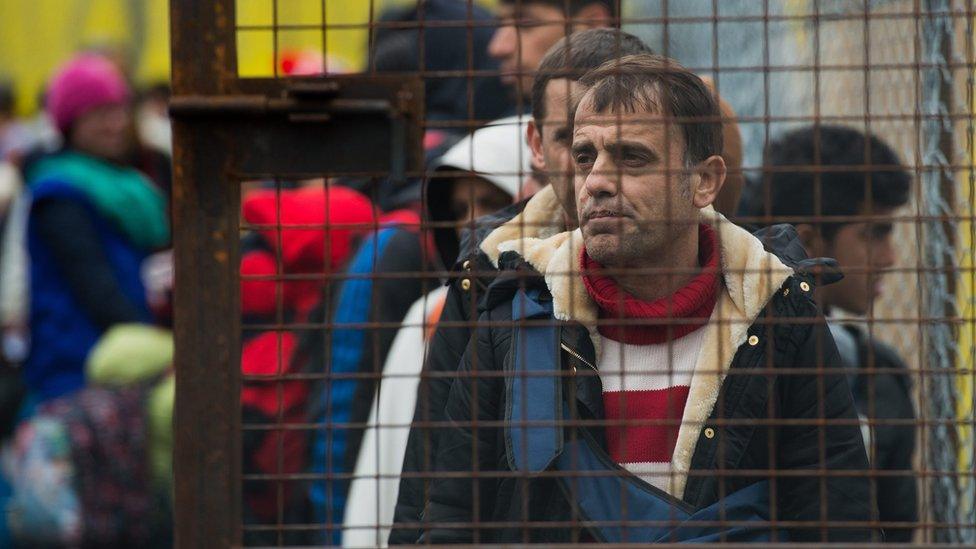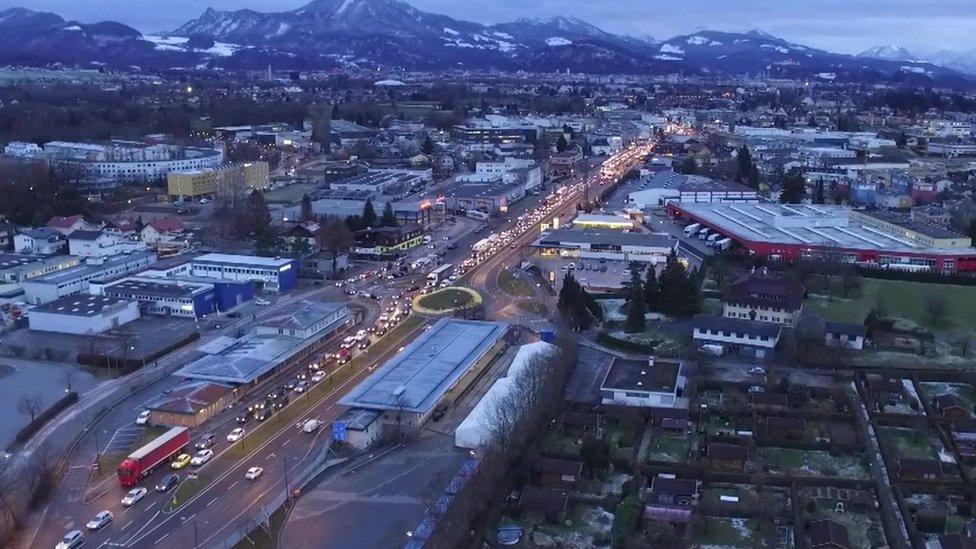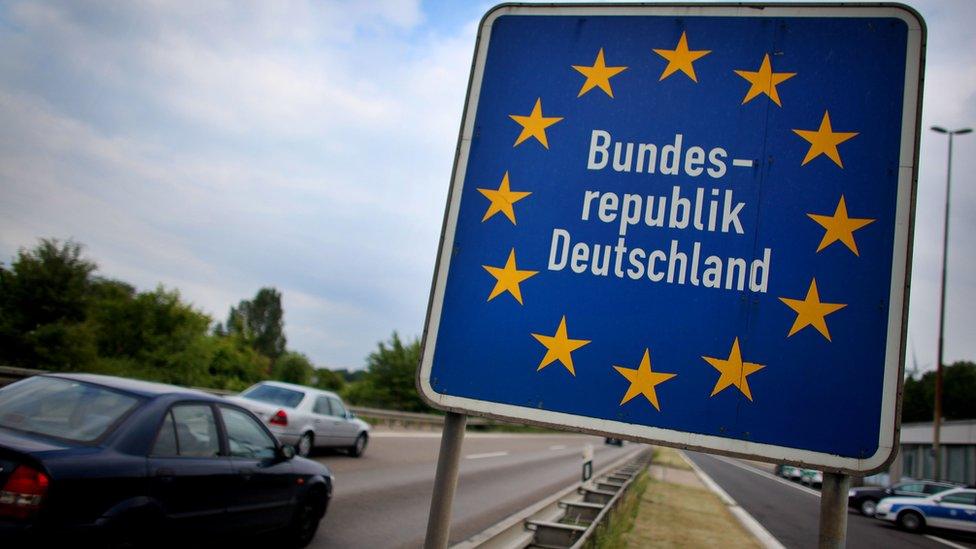Migrant crisis: Austria sets asylum claims cap and transit limit
- Published

Austria is part of the main route for migrants bound for northern Europe
Austria will impose a daily quota on asylum claims and limit the flux of migrants travelling through the country.
Officials say 80 asylum applications will be accepted each day, and a maximum of 3,200 people will be allowed to travel through Austria.
The measures will be introduced on Friday.
The country has become a major transit route for migrants seeking to claim asylum in Germany.
Interior Minister Johanna Mikl-Leitner said Austria had no choice but to act, as there was no European solution yet in place for the current migrant crisis.
"It is a matter of common sense to secure our borders as long as there is no European solution. I see it as our responsibility, to maintain security, order and the quality of life in Austria for our citizens," she said.
"We cannot cope with the number of asylum applications that we had last year. That is why we impose limits on the stream of refugees. Another step is the introduction of daily quotas."
Schengen: EU free movement deal explained
Austria's Plan B to cap influx of refugees
Austria took in about 90,000 asylum seekers in 2015, about 1% of its population, and officials expect to cut this number sharply this year, to about 37,500.
Observers say the influx has contributed to the rising popularity of the far right in Austria, sparking tensions in the governing coalition.
Neighbouring Slovenia and other countries in the Balkans - the main route for migrants bound for northern Europe - have also indicated that they will impose tougher measures against migrants.
Some EU states have already re-imposed border controls on a temporary basis.

Austria hopes to reduce asylum claims to 37,500 this year
The migrant flux is expected to intensify in coming months as weather conditions improve.
The crisis will be high on the EU's agenda at a Brussels summit on Thursday, and countries are expected to debate the future of the Schengen Agreement that creates a 26-nation passport-free zone.
Following the Austrian announcement, the Slovenian government said it had asked its parliament to approve the deployment of soldiers to its borders to help control the migrant flow.
- Published17 February 2016

- Published24 April 2016
